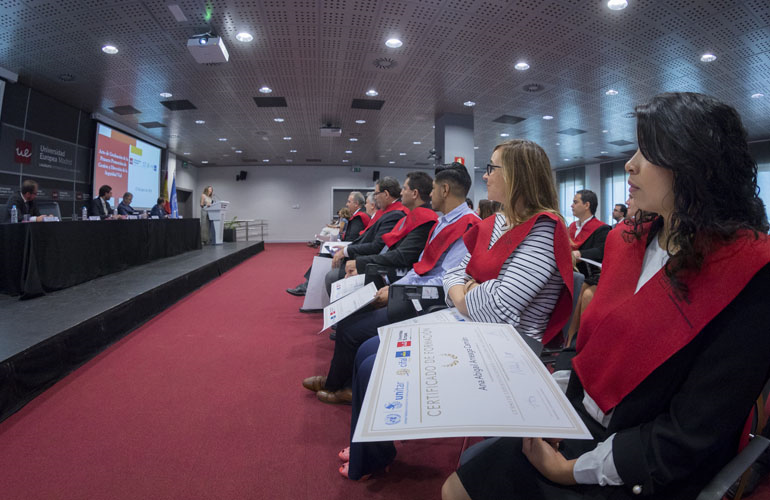About us

The CIFAL centres are run by management bodies that are organised according to the criteria required to form part of the network of CIFAL centres.
The most important body is the Board of Representatives, in which decisions are taken that will affect the operation and management of CIFAL Madrid. Among its functions is approval of the activity plan, the budget for the year and the definition of actions to be taken, establishing priorities and strategies. The highest representatives of the Board are the President of CIFAL Madrid and of RACE, Carmelo Sanz de Barros, and Nikhil Seth, as Executive Director of UNITAR and Assistant Secretary-General of the United Nations. The board is composed of members of the FIA; of a number of ministries of the Government of Spain; associations representing the automobile sector; as well as the high representatives of the Global Partner companies that participate in the CIFAL Madrid training project. Membership of this Board is unpaid.
The Director of the Centre is responsible for management and day-to-day activity, the operation of the centre, the execution of its activity plan, relations with companies and institutions, and ensuring compliance with the objectives established by the Board of Representatives. Among the requirements for the position, the director of CIFAL Madrid must have:
- advanced road safety university studies, experience implementing training programmes, involving management of funds and preparation of projects for third-party partners;
- work experience: academic training must be combined with professional experience of at least 10 years in the areas and competences of the CIFAL Centre, including management of projects, planning and analysis, preparation of the budget and experience with local and national authorities and institutions.
Among the director’s competences is knowledge of the field of work or specific areas that are dealt with at the CIFAL Centre, and a capacity to communicate with the media. The Director will work in collaboration with other members of the CIFAL centres and UNITAR; assuming responsibility for the implementation and execution of projects, and adapting them to the needs of the partners. Another of the Director’s tasks is to maintain contacts with international authorities, local members of government and private organisations for participation in and promotion of the activities, taking part in the annual meeting of the heads of CIFAL centres.
Finally, CIFAL Madrid has an Advisory Board through which it aims to extend the centre’s knowledge, field of action and activities in a variety of fields. The Advisory Board is not paid, and provides more technical and academic input. It supports the Director of the centre, assists the development of training plans and campaigns, as well as the necessary training procedures needed to achieve the objectives defined in the training plans. The members of this Board are professional associations, public institutions, employers’ associations and prevention institutes, victims and foundations.










